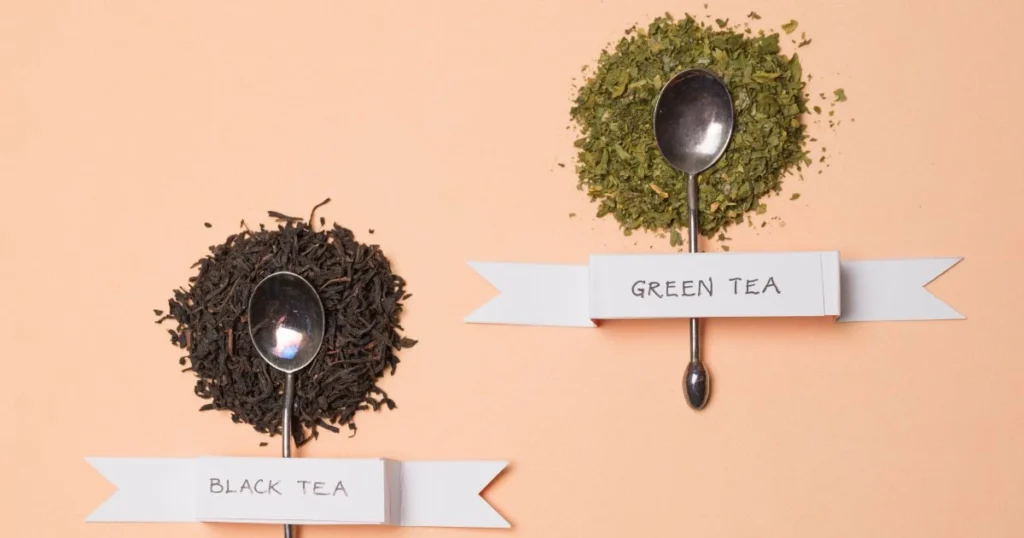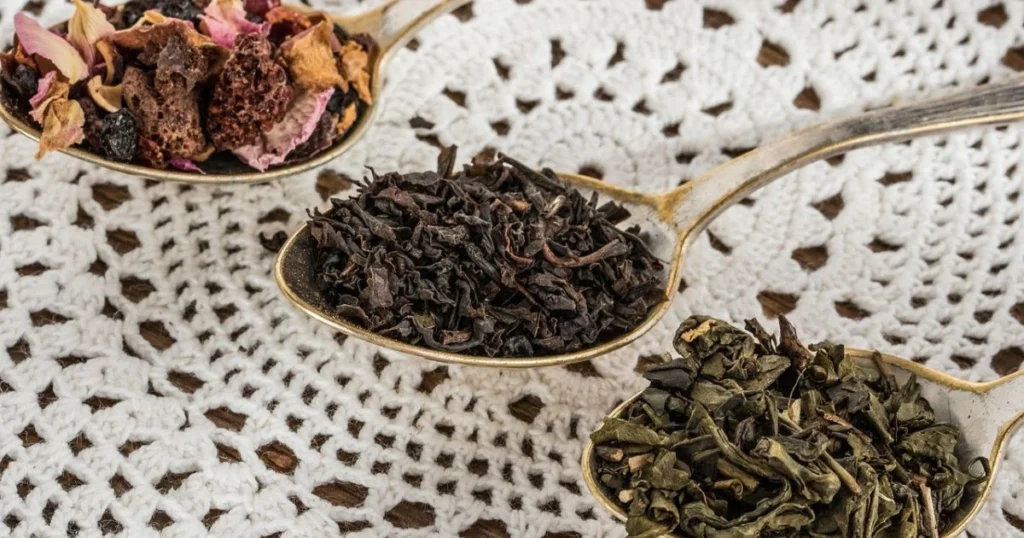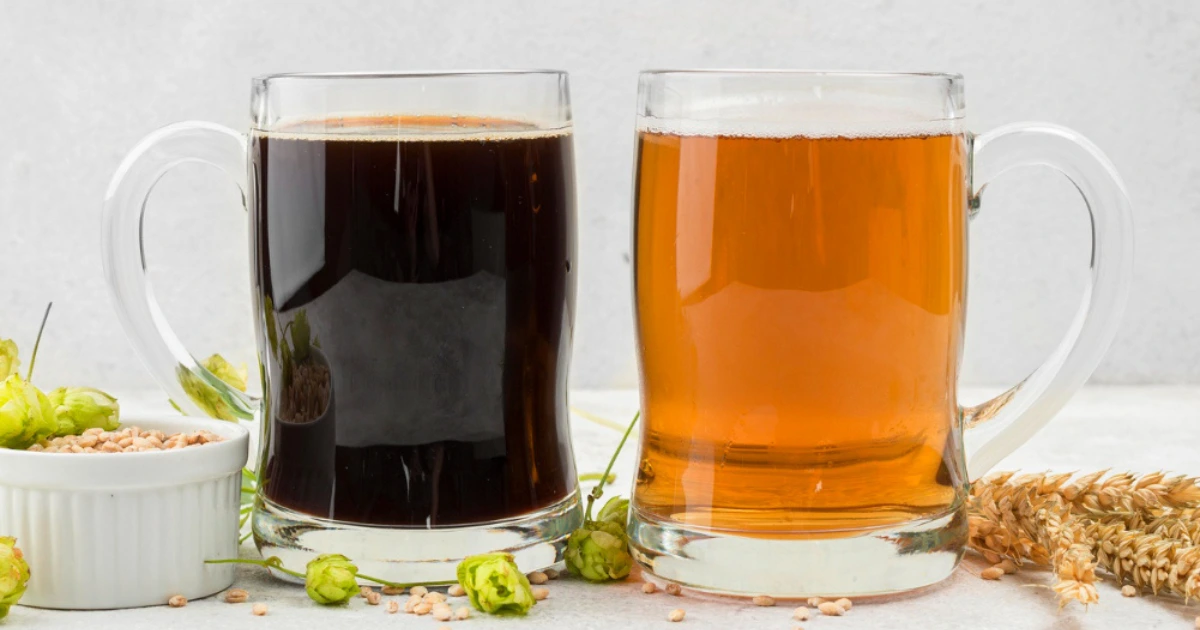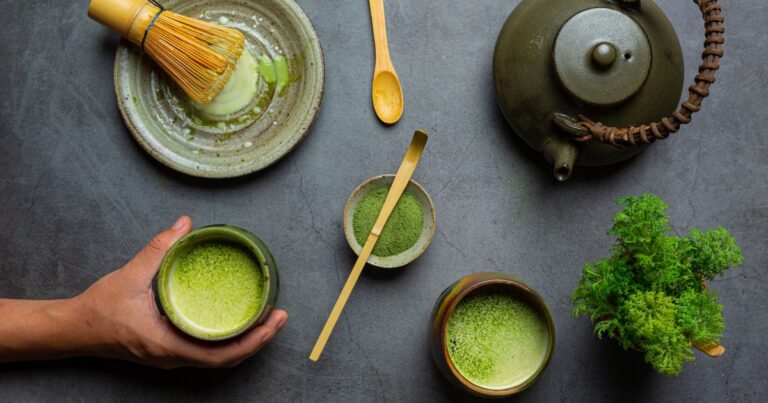Does Green or Black Tea Have More Caffeine? A Quick Comparison
A Personal Sip: Why Your Tea Choice Matters
Does Green or Black Tea Have More Caffeine?
You’ve probably had that moment—staring at your tea stash, wondering whether to reach for the green or black tea. If you’re like many tea lovers, the decision isn’t just about flavor. It’s also about energy, calm, and one big question: does green or black tea have more caffeine? Whether you need a boost or a gentle lift, knowing the difference can help you sip smarter.
This article will help you understand how green and black tea compare when it comes to caffeine content, so you can make better choices that fit your lifestyle, energy levels, and wellness goals.
Understanding the Basics: Green Tea vs Black Tea


Although green and black tea have distinct flavors and effects on the body, they both originate from the same plant—Camellia sinensis.”Even though green and black tea taste different and feel different in your body, they both come from the same plant—Camellia sinensis. What makes them unique is how they’re processed.
- Green tea is lightly processed, with little to no oxidation. This keeps it more delicate in taste and usually lower in caffeine.
- Black tea is fully oxidized, resulting in a bolder flavor and typically more caffeine.
What Influences Caffeine in Tea?
The caffeine content in tea isn’t fixed. It varies depending on several natural and human-influenced elements. Here’s what plays a role:
Factors That Affect Caffeine Levels
- Tea leaf age: Younger buds have more caffeine than older leaves.
- Processing method: More oxidation = generally more caffeine.
- Tea variety: Some types of Camellia sinensis are naturally higher in caffeine.
- Growing conditions: Climate, soil, and altitude affect the final caffeine levels.
- Harvest time: Spring harvests can be richer in caffeine.
- Brewing technique: Temperature, steeping time, and amount of tea all matter.
Caffeine Content in Green vs Black Tea
So, let’s get to the numbers. On average, black tea contains more caffeine than green tea, but there’s a range for both depending on how you prepare them.
Tea Caffeine Comparison Table
| Tea Type | Average Caffeine per 8 oz | Caffeine Range |
| Green Tea | 28 mg | 12–45 mg |
| Black Tea | 47 mg | 14–70 mg |
You’ll notice overlap between the two. That’s because brewing, leaf quality, and blend type all affect the final caffeine amount in your cup.
Brewing Techniques That Influence Caffeine
How you prepare your tea plays a massive role in how much caffeine you end up drinking.
Water Temperature & Steeping Time
- Green Tea: Use water around 160–180°F. Steep for 1–3 minutes to avoid bitterness and reduce caffeine extraction.
- Black Tea: Use hotter water—195–212°F. Steep for 3–5 minutes to bring out more flavor (and more caffeine).
Leaf-to-Water Ratio
- Standard: 1 teaspoon per 8 oz of water
- Want more caffeine? Add extra tea leaves.
- Prefer less caffeine? Use fewer leaves or do a short first steep and discard it.
Green Tea’s Unique Caffeine Experience
Green tea gives you a smoother, sustained lift. That’s thanks to L-theanine, a calming amino acid that works alongside caffeine to give you alertness without anxiety.
Green Tea Caffeine Characteristics
| Feature | Effect on Energy |
| Lower caffeine content | Gentle, gradual energy release |
| L-theanine presence | Mental focus without the jitters |
| Minimal processing | Preserves natural antioxidant compounds |
Green tea is ideal for when you want to stay alert, focused, and calm—perfect for midday or early afternoons.
Black Tea’s Caffeine Kick
Black tea doesn’t just give you caffeine—it gives you a stronger energy curve. That’s because of powerful compounds like thearubigins and theaflavins, which help release caffeine slowly and evenly.
Black Tea Energy Features
- More caffeine overall for a stronger start
- Thearubigins regulate how your body absorbs caffeine
- Theaflavins support sustained focus and metabolism
- Great for morning routines or early work sessions
Best Times to Drink Green or Black Tea
Timing is everything, especially when caffeine is involved.
When to Sip What
| Tea | Ideal Time to Drink |
| Black Tea | 6 AM – 2 PM |
| Green Tea | 9 AM – 3 PM |
| Avoid both | After 4 PM if caffeine-sensitive |
Health Benefits Beyond Caffeine
Green and black tea are both packed with health benefits. While they share some properties, each has its own specialty.
Green Tea Benefits
- Catechins: Powerful antioxidants
- Boosts metabolism
- Enhances brain function
- May support weight management
- Could help reduce inflammation
Black Tea Benefits
- Polyphenols: Theaflavins and thearubigins
- May lower cholesterol
- Supports heart health
- Improves circulation
- Reduces stroke risk
Your choice should reflect your personal health goals. If you want a metabolism boost and calm energy, go green. For heart health and a stronger energy push, go black.
Managing Caffeine Sensitivity
If you’re caffeine-sensitive, you can still enjoy tea, you just need a smart approach.
Signs You Might Be Sensitive
- Jitters or nervousness
- Rapid heartbeat
- Trouble sleeping
- Digestive upset
Tips to Reduce Caffeine Intake
- Steep for a shorter time
- Use fewer tea leaves
- Drink tea earlier in the day
- Choose green tea or decaf options
Low-Caffeine Alternatives You Can Enjoy
Looking to scale back without giving up flavor or benefits? Try these herbal and low-caffeine teas:
- Chamomile: Relaxing and caffeine-free
- Rooibos: Naturally sweet and rich in antioxidants
- Peppermint: Great for digestion, zero caffeine
- Hibiscus: Tart and vitamin-rich
You can also explore decaffeinated green or black teas using CO2 or water-processing methods that maintain flavor with less caffeine.
Quick Comparison: Green Tea vs Black Tea
| Aspect | Green Tea | Black Tea |
| Caffeine (avg.) | 28 mg | 47 mg |
| Energy effect | Calm, steady alertness | Strong, stimulating |
| Key compound | Catechins + L-theanine | Theaflavins + thearubigins |
| Ideal time | Mid-morning to early afternoon | Morning to early afternoon |
| Flavor profile | Mild, grassy | Bold, malty |
| Best for | Focus & calm energy | Energy, alertness, heart health |
Frequently Asked Questions (FAQ)
Does green or black tea have more caffeine?
While black tea typically has more caffeine than green tea, factors like brewing time, water temperature, and the type of tea leaves also affect the final caffeine content.”
Can I reduce caffeine in my tea?
Yes! Use cooler water, steep for less time, or go for decaf options.
Is green tea better than black tea?
It depends. Green tea is better for gentle energy and metabolism; black tea is better for a stronger boost and heart health.
Is the caffeine in tea better for your health than the caffeine in coffee?
Tea caffeine works slower and pairs with L-theanine, offering a balanced, less jittery experience.
What’s the best tea for caffeine sensitivity?
Choose green tea, decaffeinated tea, or herbal options like chamomile or rooibos
Conclusion: Your Ideal Cup Is Personal
You now know that green and black tea aren’t just different in taste—they deliver different caffeine experiences, too. Whether you’re aiming for focused calm or energized alertness, there’s a tea for you.
Make your choice based on:
- Time of day
- Your health goals
- How your body responds to caffeine
- Flavor preferences
Experiment, explore, and enjoy your journey through the world of tea. Because your perfect cup? It’s not just about caffeine—it’s about what makes you feel your best.
Your Turn: What’s in Your Cup Today?
If this article helped you understand your tea better, share it with a friend who’s still figuring out their favorite brew. Got a question or favorite blend? We’d love to hear your thoughts—share them with us in the comments below!


